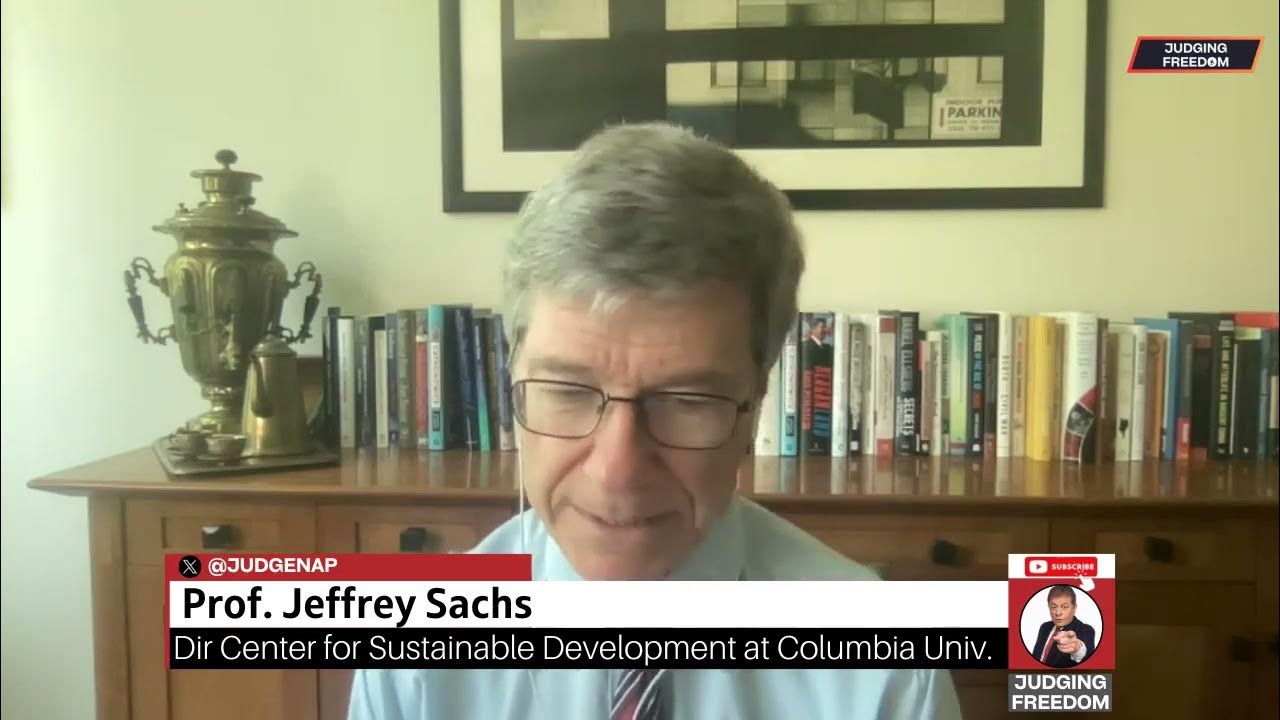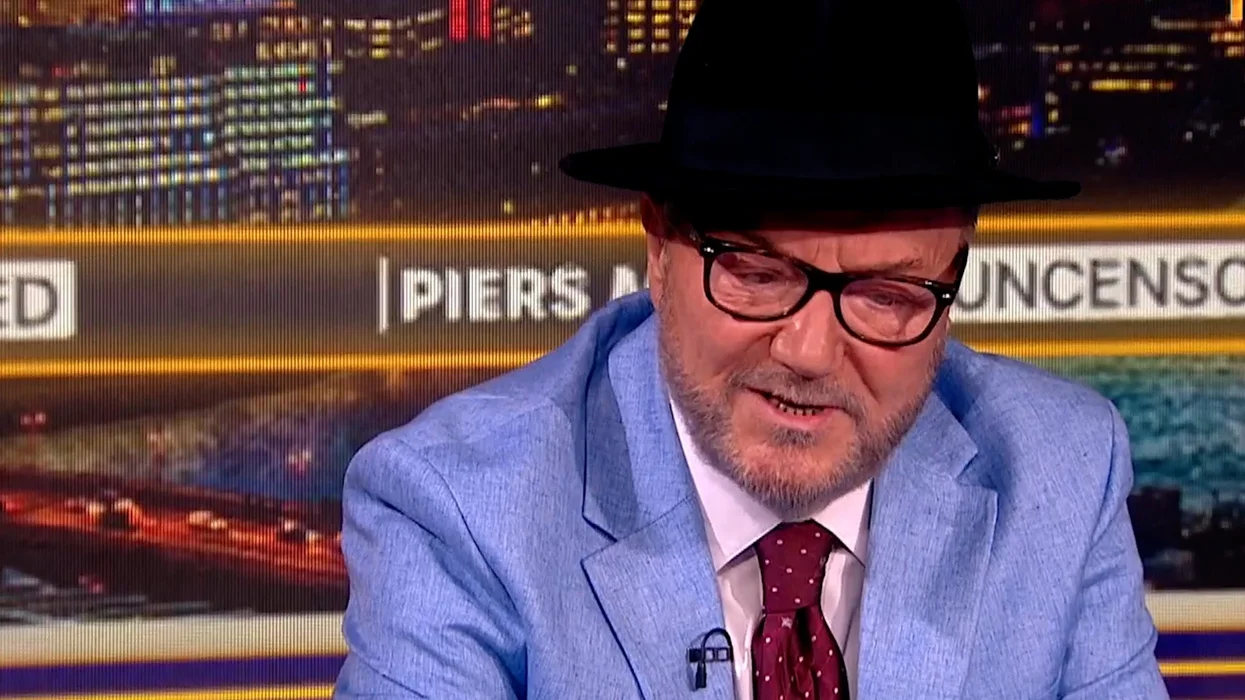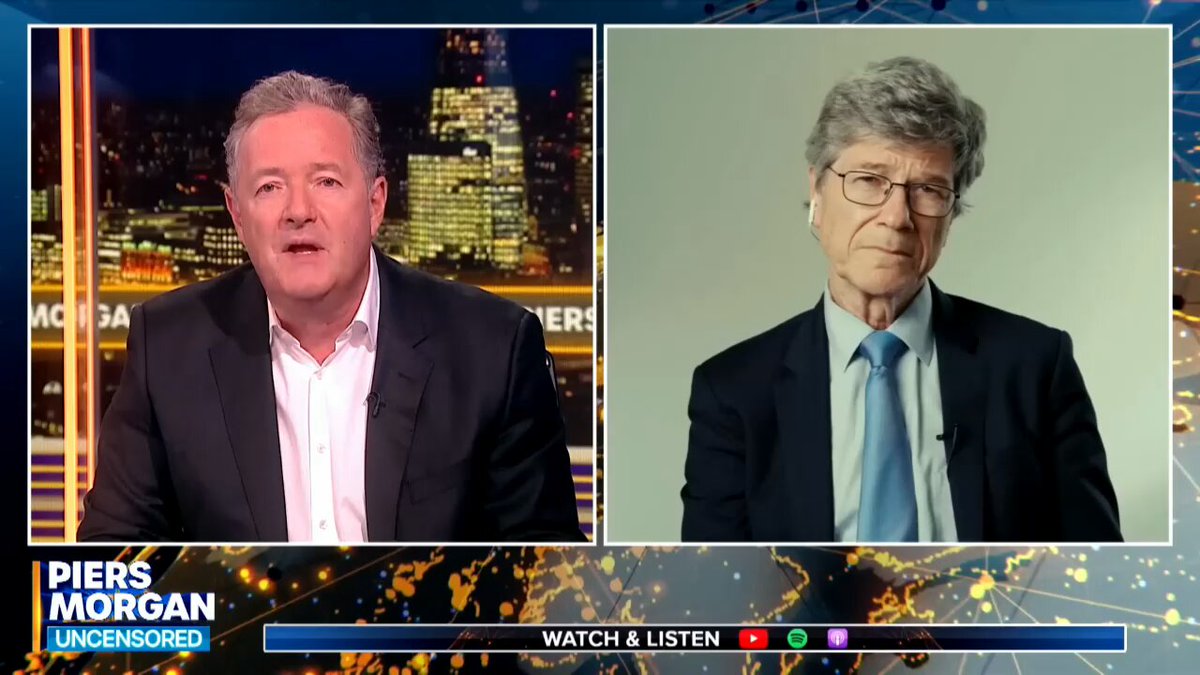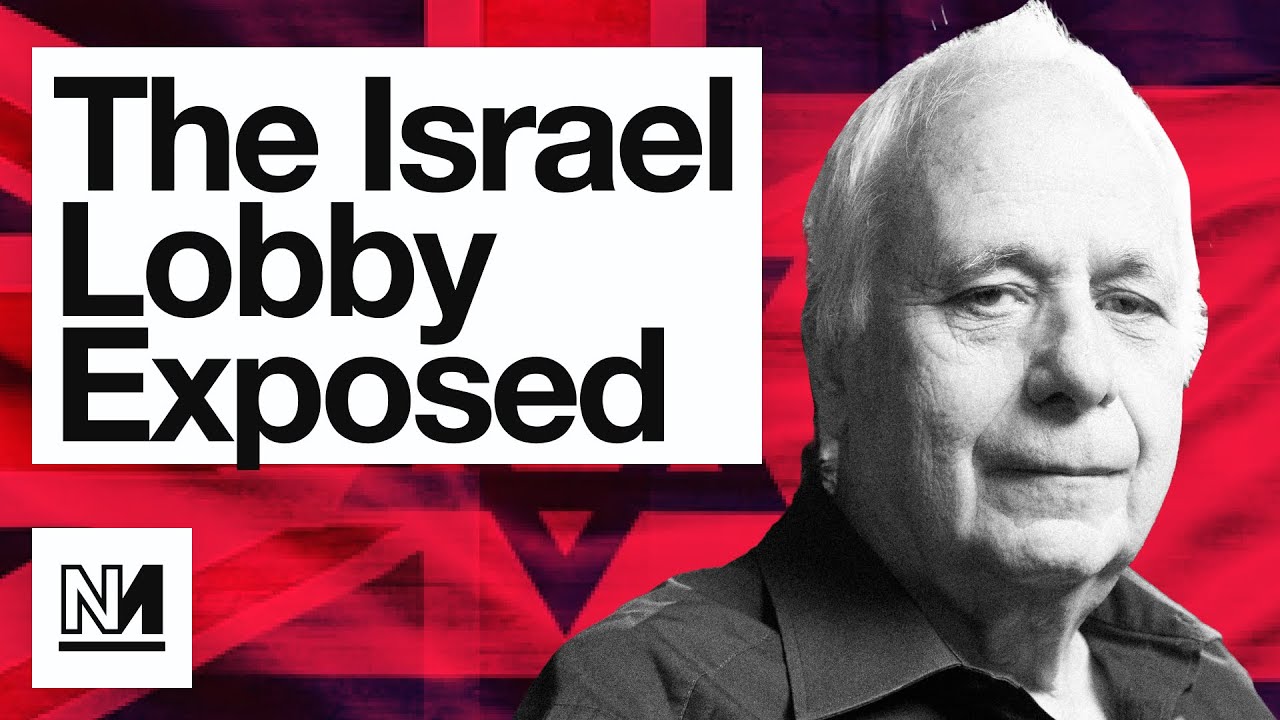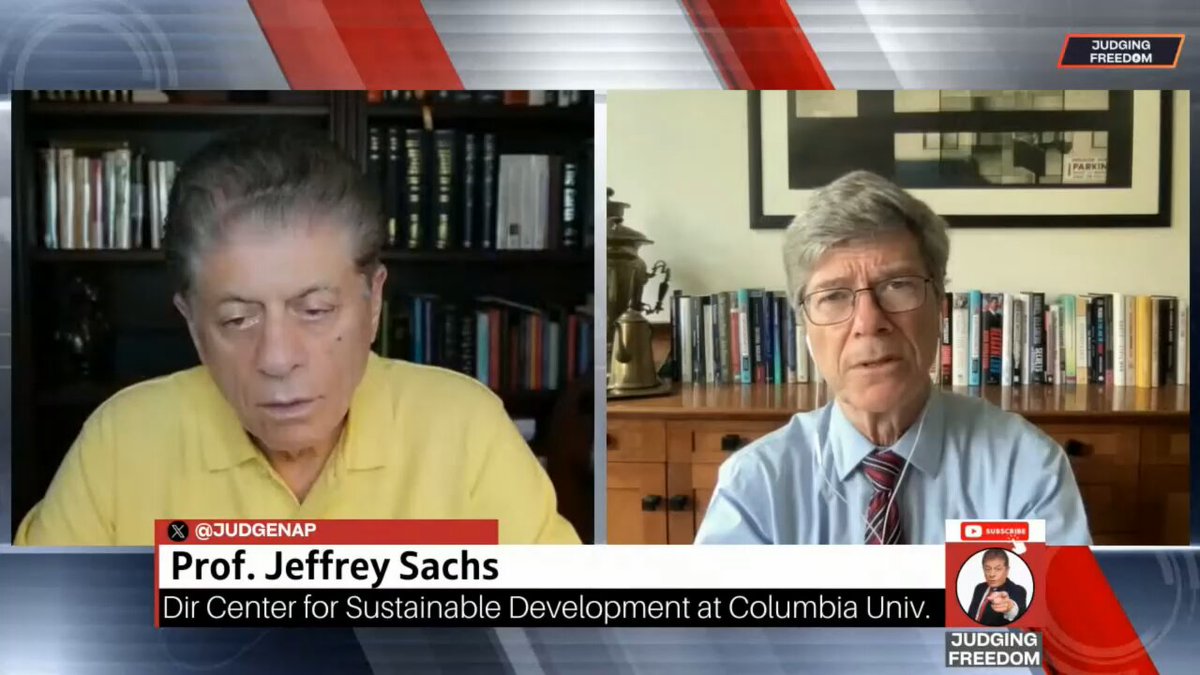In this episode of Judging Freedom, Judge Andrew Napolitano and Professor Jeffrey Sachs discuss the release of Julian Assange, who was prosecuted despite his actions being protected under the Pentagon Papers case. They criticize the lack of US-Russia diplomacy, which exacerbates tensions and risks nuclear conflict. Sachs emphasizes the importance of transparency and negotiation, condemning US and Israeli foreign policies. The conversation highlights the dangers of escalating wars and the urgent need for diplomatic solutions.
Published on June 25, 2024 (YouTube)
* * *
Andrew Napolitano: Hi everyone, Judge Andrew Napolitano here for Judging Freedom. Today is Tuesday, June 25th, 2024. Professor Jeffrey Sachs joins us today. Professor Sachs, thanks very much for your time as always.
Jeffrey Sachs: Thank you, Judge.
Andrew Napolitano: A lot to discuss with you. Let’s go to breaking news, which is the agreement by the British government and American government to release Julian Assange. His guilty plea in the most out-of-the-way federal court I’ve ever heard of in the Mariana Islands, even though I’m an expert in the judiciary, I did not know that a federal judge sat there. He’ll be sentenced to time served and by this time tomorrow should be a free man in Australia. My own view is that there’s no basis whatsoever to have prosecuted him; his behavior was 100% protected under the Pentagon Papers case. I am glad he’s free, but I’m sorry the feds are getting their pound of flesh with this absurd guilty plea. I’ll let you take it from there.
Jeffrey Sachs: Well, I’m going to go with you on the law, certainly, Judge. So, I’m sure you’re right, and I’m sure you know best. Also, I’m very happy that he is free and going home to Australia. The point I would make is that Julian Assange has done a great service to the American people and the world. We are nearly at World War III, or maybe in World War III, in no small part because of secrecy and lies. Our foreign policy operates on the basis of high confidential documents and lies to the American people nonstop. Julian Assange has helped to expose many of those lies. One that I frequently refer to is a particular cable that was on WikiLeaks from our current CIA Director William Burns in 2008 that laid out the case against what Biden is doing until today, which is pushing NATO to Ukraine. That famous memo leaked by Julian Assange would never have been seen by the American people but for this kind of exposure.
Andrew Napolitano: Is that the “nyet means nyet” memo?
Jeffrey Sachs: Yes, it is. It is a historic document, and we never would have seen it or known how these people have led us into a reckless war knowing how dangerous this is. It’s shocking to me that William Burns, a very astute diplomat, even though he should be Secretary of State, knows the truth but still doesn’t explain it to the American people. But at least we get to read his memo because of Julian Assange.
Andrew Napolitano: Yes, and I don’t want to get too deep into the weeds, but the Pentagon Papers case, which is based on very similar behavior involving Daniel Ellsberg and The Washington Post and The New York Times, articulates the absolute immunity from civil liability or criminal prosecution to the publisher of matters material to the public interest, no matter how the publisher gets them. They are almost always stolen by somebody, some intermediary. In Assange’s case, it was Bradley Manning, who had his 35-year sentence commuted to time served on the morning of Barack Obama’s last day as president, right before Donald Trump’s inauguration. And that was cutting it close, indeed. But also important, the Pentagon Papers case defines one of the purposes of the First Amendment: that the American public has the right to know what their government is doing. You know better than almost anybody how the government will classify almost anything it doesn’t want the public to know about, even its misdeeds, crimes, and embarrassments, often with no secrecy involved whatsoever.
Jeffrey Sachs: Absolutely. What we know and what I’ve learned over more than 40 years of my work is how relentless the lying is by the US government and this military-industrial state. I was in high school when the Pentagon Papers were first released, and they had a big effect on me. But I did not suspect how pervasive the lying would be for decades to come. Almost every single major foreign policy decision, whether it’s the coup that overthrew Yanukovych, where the US played a significant role, the breakdown of negotiations between Ukraine and Russia in March 2022 that could have ended this war immediately but the United States said no, or where the COVID virus came from, which also has its US hand in creating a virus in a laboratory, or the war in Iraq in 2003—it’s lies, not just bad judgment, but lies repeatedly told to the American people. This is why this whole system of classification is wrong. It’s not protecting the American people; it’s allowing a small group of not very clever people to bring us closer to nuclear Armageddon. Our fate is in the hands of a small number of people who operate in secrecy and who tell lies to the American people. This is really the essence of it.
Andrew Napolitano: Transitioning to Russia but consistent with the theme of lies, will the government of the United States admit that its drone targeted and killed civilians on a beach in Sevastopol on Sunday afternoon?
Jeffrey Sachs: Well, a lot of people died on that beach in Sevastopol. There are two theories, and I can’t distinguish them. One is that the beach was targeted, and the other is that the missile was aiming for a military installation and was shot down, then fell on the people on the beach. The fact of the matter is something rather obvious and true: the United States is directly at war with Russia. Shame on us for being in this situation, but directly at war. Not just providing armaments and training but also the intelligence operation. It’s our Blackhawks collecting intelligence over the Black Sea that are used to program where these attack missiles fly. We are doing the work. Maybe a Ukrainian pushes the button at the last moment, but everything else is American in this. The United States is at war with Russia. Each side has 6,000 nuclear warheads. There is no cause for this war at all, because this war never would have occurred had the United States not overthrown a government together with right-wing forces in Ukraine, then armed Ukraine, and insisted that the US could put its missiles and military bases anywhere in Ukraine. We’ve shown reckless disregard for reality, and we are now at war. It’s extraordinarily dangerous, and these missiles that hit Crimea could not have been launched without the United States playing its direct part in the firing of these missiles.
Andrew Napolitano: Reckless disregard for reality—that is a fabulous phrase and a brilliant summary of the argument you’ve been making. I’m going to guess you know this person, but I want you to hear what he had to say. This is Russia’s UN Ambassador, not very happy about this.
Russian UN Ambassador: The Kyiv regime, supported by the USA, carried out a heinous attack against civilians in the Russian city of Sevastopol in Crimea. Ukraine launched five US-supplied ATACMS missiles armed with cluster munitions. An American Global Hawk UAV was patrolling the airspace over the Crimean Peninsula. There will be measures in response. The Russian Federation will continue to protect its people and its national security until no threat is posed by the neo-Nazi regime in Kyiv that was created, raised, and financed by the West.
Andrew Napolitano: That is a very harsh and accurate condemnation from your view and mine. There’s a picture of people lying on the beach in the foreground; you can see what’s happening in the background. I don’t know, has Tony Blinken said anything about this? Has Joe Biden, Lloyd Austin, or Jake Sullivan? I’ve not heard anything, but this is really the essence of what the ambassador said. This is a direct war right now. The American people do not want a war with Russia. When the White House says, “Oh, we’re not at war with Russia,” they are lying. They are lying because we are absolutely part of the firing of those missiles, for example, and not just giving them the missiles. As the ambassador explained, the programming of the missiles, the intelligence— we’re flying those intelligence drones over the Black Sea every day. That’s what is providing all of the data to input into where those missiles are going to be launched. So come on, this is so reckless. And yeah, the President says nothing, Jake Sullivan, Blinken—it’s terrible. It’s so dangerous. It’s so irresponsible, and it’s escalating. And it’s escalating because we have a November election, so what the hell? Two sides, each with 6,000 nuclear warheads. Are we crazy?
Andrew Napolitano: I want to ask you about the probability of escalation, but before that, I’m going to read a statement because we don’t have it on audio from Foreign Minister Lavrov. This is harsher, as you can see, than what we just heard from the Russian ambassador to the UN. The US is responsible for this massacre, and they will get an answer. All flight missions for America’s ATACMS missiles are programmed by American specialists based on their own US satellite intelligence data, just as you said, Professor Sachs. Back to the quote: Therefore, the responsibility for the deliberate missile strike against the civilian population of Sevastopol lies primarily with Washington, which supplied this weapon to Ukraine, as well as with the Kyiv regime from whose territory this strike was launched. Such actions will not go unanswered.
Andrew Napolitano: Does this represent the thinking, Professor Sachs, of President Putin?
Jeffrey Sachs: Of course it does. This is stated by his foreign minister and by the way, a remarkably capable and experienced foreign minister. These are not just throwaway statements. These are statements of the government of the Russian Federation, and I’ve heard from senior diplomats the same statements directly expressed to me. There is alarm, there is consternation, there is a sense of escalation, and there is great danger. What’s remarkable, and I would say even puzzling, to the Russian senior diplomats, is why President Biden doesn’t even want to talk. Why doesn’t the US government have any sense of responsibility to sit down and even have an exchange of views? Almost nothing is happening like that. There hasn’t been a single call, as far as I know—and I’m pretty sure I’m right—between Biden and Putin since February 2022. It’s unbelievable.
Andrew Napolitano: You have been at the forefront of criticizing the State Department for not engaging in diplomacy. You have argued that the type of communication expected of high-level and mid-level diplomats doesn’t take place, not because the Russians won’t call us or take our calls, but because we won’t talk to them. Wouldn’t something like this have been avoided? Wouldn’t these little children be alive if Blinken spoke with Lavrov?
Jeffrey Sachs: Yes, I think it’s also important for American listeners to reflect. When some Chinese balloons—we don’t even know what they were doing—flew over the United States inadvertently, the US went into full alert mode and shot down the balloons and made every possible charge. This is American missiles targeted by the American military landing on civilians on a beach in Russia. What do you think about it? How would we react? I don’t even want to think about how horrifically over-the-top our reaction would be.
Andrew Napolitano: What do you expect from President Putin, besides these two statements from the foreign minister and the UN ambassador?
Jeffrey Sachs: Look, what I expect with a high likelihood is that Russia’s continuing attacks on Ukraine are going to intensify, and Ukraine will lose more and more until the United States finally says, which it finally will say, “Okay, let’s sit down and negotiate.” President Putin said a couple of weeks ago—now I can’t remember exactly the date—but he said, “Here are the Russian proposals for ending this war.” The United States said, “That’s an ultimatum.” It was not an ultimatum; it was Russia’s position for ending the war. The United States says, “You see, there’s no one to negotiate with.” President Putin said, “We want to negotiate. This is our position.” What is the matter with the United States? Doesn’t it understand anything about negotiations? If one side states a position, you can say, “Okay, we sit down. We don’t agree with you on this, this, and this, but we sit down to talk.” You’ve opened up; you’ve said your position. Here’s our position. Good. Get the two sides to sit down. That’s called grown-up behavior. This is not complicated, by the way. This is pretty basic in diplomacy. Where the heck is Blinken? He can sit down with Lavrov. They can talk; they can get something going. There are several topics that need to be discussed. One is the security arrangements between the two countries. Does NATO really have to expand to Russia’s border? Is that sane? Is that prudent? No, of course it’s not. So they can discuss common security arrangements. They can discuss the nuclear situation, which is getting out of hand because the US has walked out of two nuclear treaties: the ABM Treaty and the INF Treaty, and there’s no framework right now. We know from Ray McGovern and his very, very important essay recently that Blinken told Lavrov in January 2022 that the United States reserves the right to put our missiles in Ukraine. Are you kidding? Did you really say that, Blinken? Show us. Stop the secrecy. Tell us what really happened.
Andrew Napolitano: That would start World War III in a heartbeat.
Jeffrey Sachs: Well, what Ray McGovern said, the very experienced senior former CIA analyst, is that in December 2021, Biden had effectively said to Putin, “Yeah, we understand your concern about missile placements. We won’t place our missiles in Ukraine.” And then in January, Blinken said, “No, no, no, don’t misinterpret. We reserve the right to place them where we want.” We need to know about this. Come on, this is our lives.
Andrew Napolitano: What can you tell us about the pressure on President Putin from his right, politically and from the military, to respond to Sevastopol in a dramatic and effective way?
Jeffrey Sachs: Look, we can see the blogs, we can see the responses by the security establishment in Russia, by former President Medvedev, who has a very hard line on his social media accounts. He expresses a widespread view in Russia. Russia’s been hit by terrorists that they say are linked to Ukraine—perfectly plausible, by the way, because the US has been funding and backing jihadist terrorists for decades now. This is also well-known but hidden from view, but not so hidden from view. This is why we absolutely need to sit down at the negotiating table. You know, the key point of the “nyet means nyet” memo—and it’s also written in Burns’ memoirs—is a simple point that people should understand. What Burns said in 2008 was, “It’s not just Putin against NATO enlargement; it’s the entire Russian political class.” That’s the essence of the “nyet means nyet” memo. Don’t personalize this to President Putin. This is the entire Russian political class, and that’s for perfectly understandable reasons. Americans, I don’t think any of us would say, “Yeah, Mexico, if you want to have Russian military bases and Russian missiles on the Rio Grande, that’s fine with us. That’s the open door policy of the United States.” I don’t think so. But that’s what we claim in our arrogance, and that’s why we lack prudence, judgment, and wisdom. We need to sit down to negotiate so that the two sides can say, “Do you really mean that? Can we do that?” “Well, no, we can’t do that.” “Okay, well then you might not do that also, please, thank you.” That’s what negotiations lead to: mutual understanding and outcomes that are for peace rather than blowing each other up.
Andrew Napolitano: Switching gears to Israel, what are Netanyahu’s troubles like today? They seem to have been exacerbated by a unanimous ruling of the Israeli Supreme Court that the ultra-Orthodox are no longer immune from the military draft. Could this be a good thing?
Jeffrey Sachs: It is a good thing.
Andrew Napolitano: I’m not in favor of a draft; however, in a country with a universal draft, it should be universal.
Jeffrey Sachs: But it’s not just that. Part of the ultra-Orthodox are the biggest warmongers. This is quite extraordinary and seems a little counterintuitive, but part of the ultra-Orthodox says, “Yes, Greater Israel, God gave us all this land, this is our right.” They’re the ones pushing these extremist views. There’s a part of the ultra-Orthodox that feeds this settler movement, that this is the redemption of the land that God promised us 3,000 years ago or whatever, and that feeds the war. But you know, it’s easier to say this when you’re sitting in the yeshiva and not on the front lines. So this is partly some responsibility also. It’s not just the universalizing of the draft; it’s actually making some responsibility. “Yeah, you want war? Well, you go fight.” And I hope that the implication of this is, “No, no, no, we don’t want war. We want to be in the yeshiva. Why don’t we end the war?” That would be a good logical response.
Andrew Napolitano: But what is Netanyahu’s political trouble like today? a) Is he giving up the ghost on trying to defeat Hamas in light of the IDF statement that Hamas cannot be defeated? b) Is he preparing to invade Lebanon, heedless, reckless of the likely consequences of that? c) Is he in danger of losing his majority in the Knesset?
Jeffrey Sachs: Some of all of that. This is a government that does not have public support for a variety of reasons. This is a terrible person and a terribly reckless politician who has empowered the most extremist politicians of Israel, like Smotrich and Ben-Gvir. This is a government that has pursued genocidal policies that can’t work, couldn’t ever work, and were devastating in their consequences—war crimes, violation of the 1948 Genocide Convention—that have killed tens of thousands of innocent people. But it’s a government that may just start a new front with an invasion of Lebanon. It’s absolutely something that could happen as we speak or in the coming days. The consequences of that could be absolutely devastating because Hezbollah is no rollover. Hezbollah has tens of thousands of missiles that can hit Israel. Hezbollah is going to be backed up by Iran. We got a taste of what Iran can do, even when it was a very limited exchange with Iran and Israel after Israel had hit the Iranian consulate in Damascus. Even that limited exchange, which was designed to be limited, Israel could not protect itself other than the United States getting directly involved. So all of this is another tinderbox that could explode any day. And with Netanyahu, he likes to light matches and he likes to pull the US into his wars. This is again the job of a US president: the main job is to not be pulled into war by the war machine or by these allies like Ukraine and Israel who say, “Yeah, we got the US, we can make them do whatever we want.” Because the United States says it’s up to Ukraine, the United States says it’s up to Israel, and suddenly they’re running our military show. And so this is why Netanyahu could absolutely expand this war in a devastating way for the US as well as for the Middle East.
Andrew Napolitano: But not if Joe Biden picked up the phone and said, “Don’t.”
Jeffrey Sachs: Yeah, all it takes. We’ve had presidents that have done this in the past. Biden seems unable to do it, but that’s the job of the US president.
Andrew Napolitano: Here is your friend and colleague, and I know you know him and advise him, the Secretary-General of the United Nations, yesterday.
Secretary-General António Guterres: Escalation in continued exchanges of fire and escalation in bellicose rhetoric from both sides as if an all-out war was imminent. The risk for the conflict in the Middle East to widen is real and must be avoided. One rash move, one miscalculation could trigger a catastrophe that goes far beyond the borders and, frankly, beyond imagination. The people of the region and the people of the world cannot afford Lebanon to become another Gaza.
Andrew Napolitano: The people of the region and the people of the world cannot afford Lebanon to become another Gaza. I don’t think it would become another Gaza for the reasons you articulated. The resistance would be massive; the resistance would be greater than the offensive, militarily.
Jeffrey Sachs: Well, first, you know, the Secretary-General is absolutely right and accurate in what he’s saying. Second, let me say that when a UN Secretary-General makes a statement like that, take it seriously and listen very carefully. I know something about the job of the UN Secretary-General because I’ve had the incredible honor to be a special advisor to three of them. I’ve watched. He is receiving absolute cutting-edge, up-to-the-moment information from all sides. So when he’s making a statement like that, he’s making a statement that is exceptionally well-informed. It’s not a casual statement.
Andrew Napolitano: This is scary, Jeff.
Jeffrey Sachs: Well, it is the job of the Secretary-General. It’s one of the most extraordinary jobs in the world: to hear all the bad news in the world, try to process it as a diplomat, and try to find a way out. So when the Secretary-General Guterres makes a statement like that, believe me, he’s briefed. Believe me, he’s talked to all sides. Believe me, it’s not just idle chatter. It is a true statement of the highest concern.
Andrew Napolitano: Wow. I’ll play you one last clip, which is Senator Elizabeth Warren being asked in the hallway of the United States Senate if she’s going to be present on the floor of the House of Representatives when Israeli Prime Minister Benjamin Netanyahu addresses a joint session of Congress. You’ll like her answer.
Elizabeth Warren: Do you plan to attend Prime Minister Netanyahu’s address to Congress?
Elizabeth Warren: No. Look, we need to cease fire, we need to get those hostages back, we need humanitarian relief, and we need to be giving both parties a big shove toward getting to the negotiating table and working out a peaceful solution.
Reporter: Should the President make clear that he should not address Congress, Netanyahu?
Elizabeth Warren: Look, that’s up to the President, but I’m not going.
Jeffrey Sachs: You know those who will be there are those on the take of campaign donations from the Israel lobby, right? That’s the problem. At least we’ll see the score. The idea of inviting Netanyahu to address Congress is shockingly exposing how bad our politics have become.
Andrew Napolitano: Yes, indeed. Professor Sachs, thank you very much. I know you have a lot of traveling coming up. I hope we can continue to have these very, very informative—especially when you’re passionate as you are today—half hours together every week.
Jeffrey Sachs: I look forward to it. Thanks a lot.
Andrew Napolitano: Thank you. All the best.

